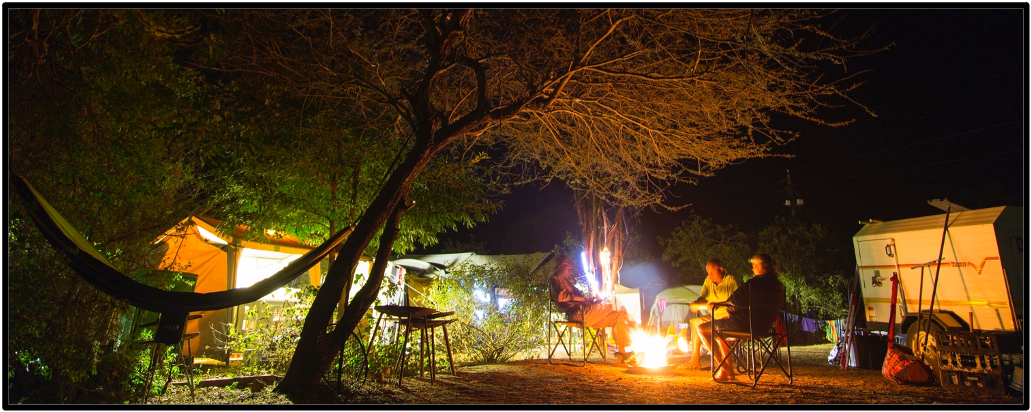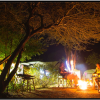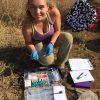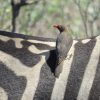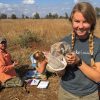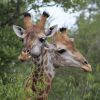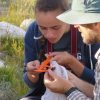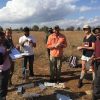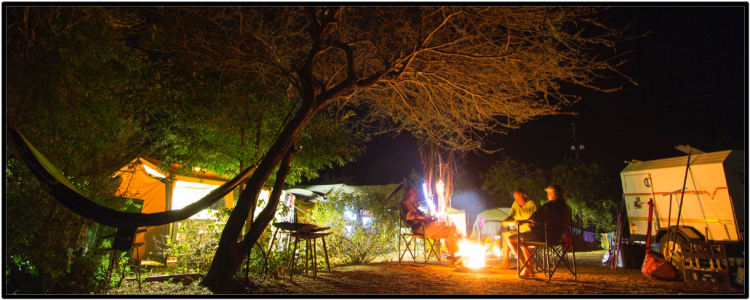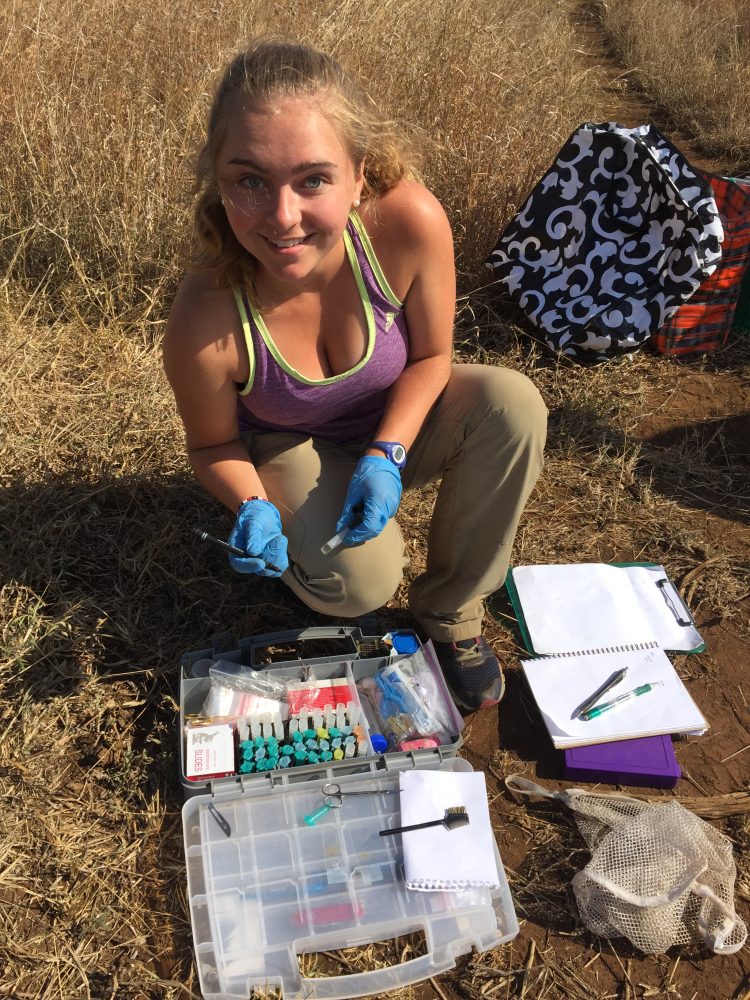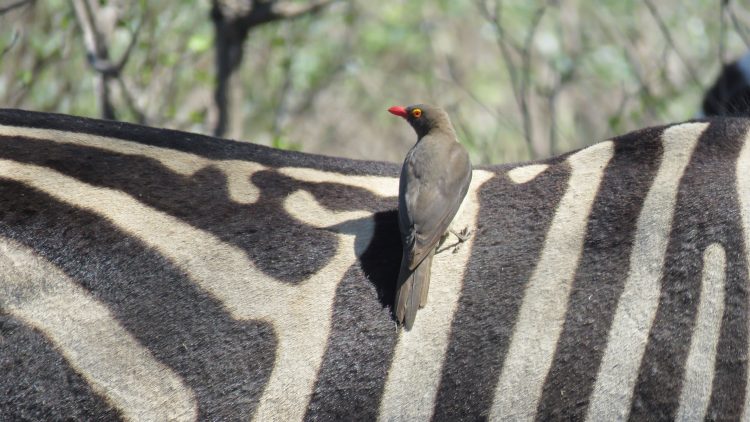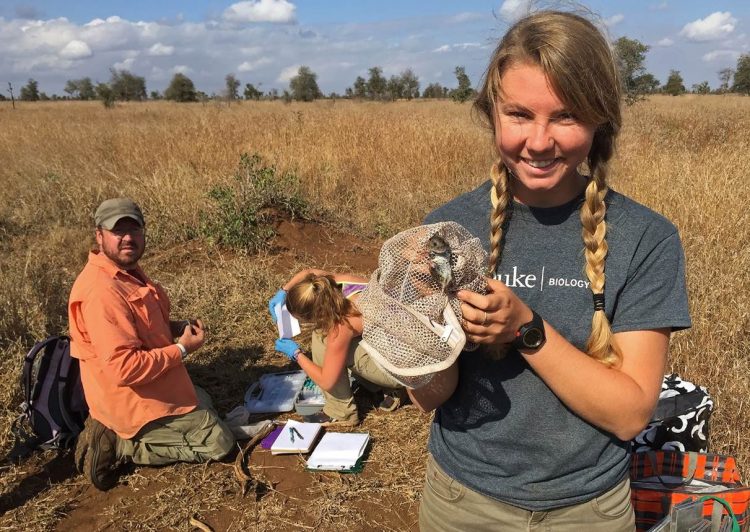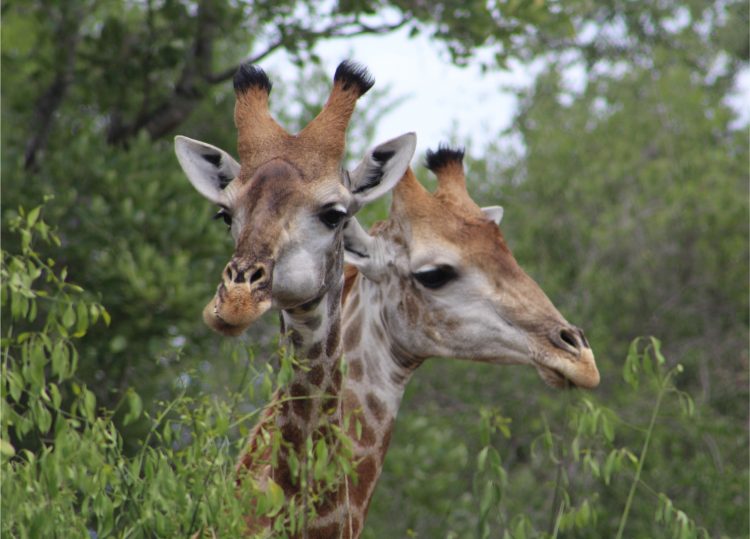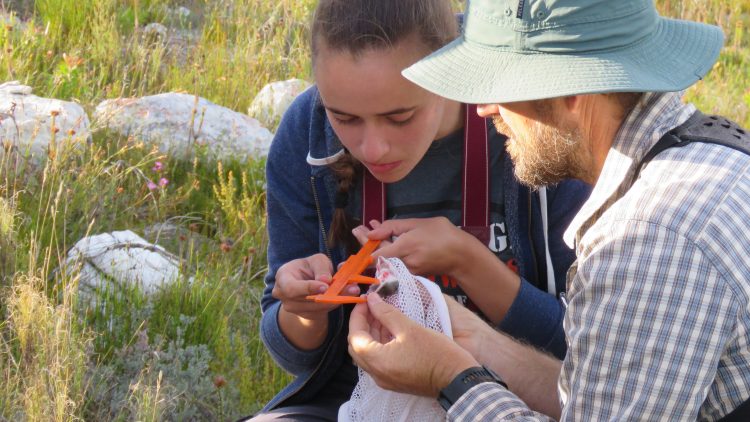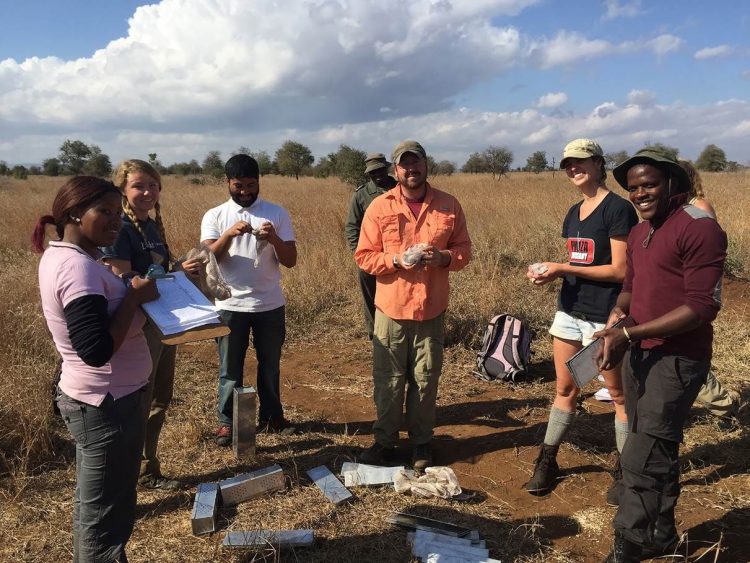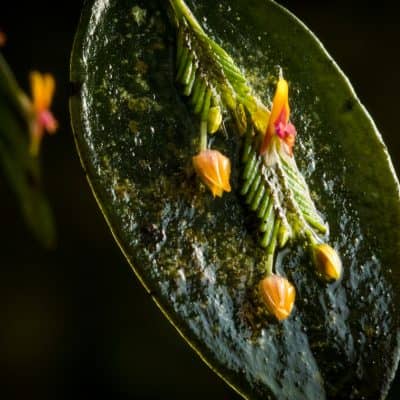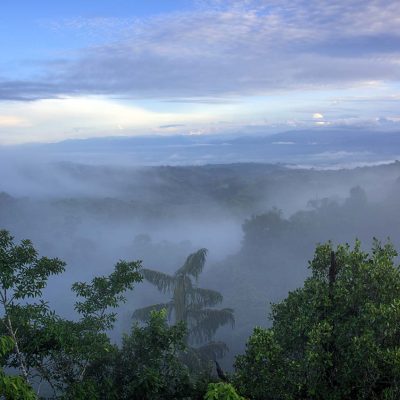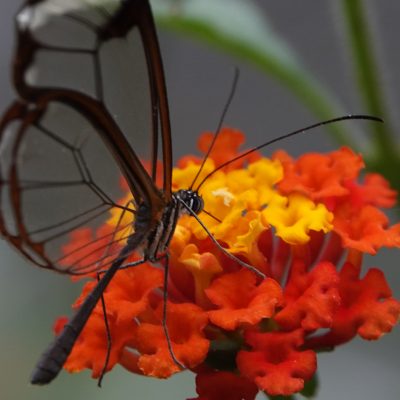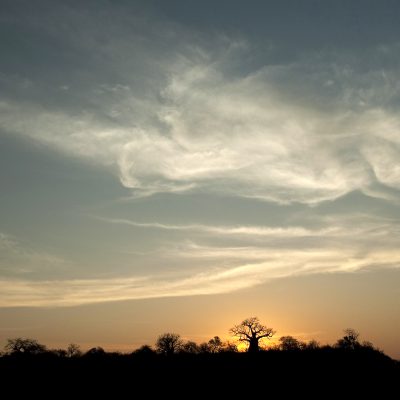The Fire, Elephants, and Biodiversity Field Practicum is an internship program that offers research experience to early career scientists and conservation practitioners as well as undergraduate students that have completed the African Ecology and Conservation course run by OTS. The opportunity gathers southern African and international students to develop critical field skills and share their knowledge and research experience with each other. The selected students spend six weeks working on several mentored projects in Kruger National Park (KNP), which focus particularly on research into the influence of elephants and fire on vegetation structure, and how this might affect resident faunal communities. Over the last ten years’ students have conducted their research in the south of KNP as well as in Swaziland. The same vegetation occurs in these two locations, but in contrast to KNP where elephant numbers are increasing and large tree density is decreasing, Swaziland’s parks lack elephants and have very different management policies (fewer fires) which has resulted in an increase in tree density. By comparing the systems in KNP and Swaziland, Skukuza Science Leadership Initiative (SSLI) students get a broader perspective on their research.
Fire, Elephants, and Biodiversity
| Status: | APPLICATIONS OPEN - SUMMER 2025 |
| When: | June 11 - July 24, 2025 |
| Where: | South Africa |
| Duration: | 6 weeks |
| Credits: | Certificate of Completion |
| Language: | English |
| Deadline: | March 15 |
| Program Guide: |
The Program, comprising SANParks staff, environmental practitioners and university students, has several key outcomes including:
- Developing a Social-Ecological Systems understanding of savannas and conservation for people and nature;
- Competence: Scaffolding critical research skills required to be an effective scientist and develop 21st-century skills (critical thinking, creativity, intellectual openness, work ethic, collaboration, and leadership); character: Work Ethic, Leadership, and conflict resolution training and career mentoring;
- Training in biodiversity monitoring and experience in field research, making a contribution to iterative, long-term conservation-driven research e.g., making a contribution to monitoring effects of elephants and fire, land use change, pollution, and climate change.
- An engagement with leading savanna scientists and field specialists in order to demystify the relationship between students and professional biologists;
- Developing a peer group and enhanced co-learning through exchange: sharing knowledge and research experience between students. The peer support continues long after the program is completed.
Prerequisites
Students must be in good standing with their home institution, at least 18 years of age, and have a minimum 2.7 GPA. Students applying to the Field Practicum can be undergraduate upperclassmen (3rd or 4th years) or first-year graduate students enrolled in animal science, veterinary, or related programs. Students should have completed at least two semesters of related coursework by the start of the program. If you are unsure if you meet these requirements, please email field.practicum@tropicalstudies.org.
The course will begin in Swaziland, where you will be housed at the Savanna Research Centre for several days of orientation. You will then depart for Lower Sabie to set up camp and begin fieldwork. We will travel to Swaziland to gain experience in working with SiSwati students in a similar ecological system, but that is facing challenges associated with bush encroachment. Once the fieldwork is completed, we will return to Skukuza and complete data analysis, write up your results, and present their findings to the members of SANParks Scientific Services.
Week 1: Introductory workshops: The introductory week includes workshops on
- STEM fields in South Africa: understanding the barriers that women face in entering the environmental sector and how students have overcome these;
- Savanna ecology (the relationship between vegetation structure and biodiversity, the effects of fire on vegetation dynamics, and elephant ecology);
- Science skills workshops and management-driven research: research design, effective defining of questions, data management (Excel), and analysis and science communication workshops (written and presentation skills);
- Science methods workshops (approaches to science, the scientific method) and
- Leadership in science and pathways into future careers.
Research mentors meet individually with students to discuss their own ongoing research and inform students of academic expectations.
Weeks 2&3 – Fieldwork in Lower Sabie: Students devote approximately three weeks to data gathering and analyses. The initial portion of the program involves vegetation research as a group and biodiversity surveys in 25 plots in Lower Sabie on the Basalt Supersite. Students collect data on vegetation structure, trap small mammals (non-lethal), acoustic monitoring for birds and bats as well as set up camera traps for larger mammals. We complete 2 rounds of sampling before taking a break and curating our data.
Week 4 – Fieldwork in Swaziland: To fully understand the effects of vegetation structure on faunal communities, we travel to Swaziland to work in Mbuluzi Reserve with the University of Florida. We engage in similar biodiversity surveys but focus on more complete floristic surveys in savanna sites at Mbuluzi. The value of traveling to Swaziland is not only exploring new ecosystems and visiting a new country but also interacting with students from the University of Swaziland and University of Florida (UF).
Week 5 & 6 – Data analysis, write-up of reports, and present papers at research symposium: During the last weeks of the program, students work closely with their mentors to collate and analyze their data. Students will prepare their final reports based on interaction with their mentors gleaned from earlier drafts and will have the opportunity to have trial oral presentations. Students present their projects in a student symposium for their mentors, OTS, UF, and Eswatini staff. Students also submit a final, written report in scientific format to the program coordinator
Tuition
Program Cost:
6 week program: $6,600 (possible to extend stay for additional cost)
Program cost includes:
- Room and board
- Local travel to program sites
- Participation of many local and international researchers, experts, and professionals
Program cost does not include:
- International travel
- Independent travel
- Incidentals
- Personal spending
Expected Additional Expenses:
- International Round-trip Flight $1,500 (approx.)
- Immunizations $50 (approx.)
- Additional Food $50 (approx.)
- Miscellaneous $50 (approx.)
Total Expected Additional Expenses: $1,650
Coordinator:
- Dr. Laurence Kruger Director, OTS in South Africa; Professor, University of Cape Town
Course lecturers
- Maggie Jones, University of Florida
- Phumlile Simelane, All Out Africa, University of Florida
- Immanuel Zwane, Organization for Tropical Studies
- Shedron Mukhumo, Field safety officer, Organization for Tropical Studies
Mentors and visiting faculty:
- Donovan Tye, Conservation Technology Director, OTS
- Prof Bob McCleery, University of Florida
- Prof Rob Fletcher, University of Florida
- Dr Ara Monadjem, University of Eswatini
- Dr Chevonne Reynolds, University of Witwatersrand
Student participants:
- OTS research Interns, Early career scientists, Graduate students
Housing & Meals
Housing varies with each site. Students will be accommodated in rooms of two to six persons. All meals are provided by our travelling caterers. Provision is made for all dietary requirements, and meals includes breakfast, lunch, and dinner. During field days, a packed lunch will be provided. Any personal snacks and drinks are the responsibility of students.
Passport & Visa Information
You must have a valid passport, and it must not expire for at least six months after the end date of the program. Most students will receive a 90-day tourist visa when entering the country, which will cover you for the length of the program. If you are not a U.S. citizen, please contact us and the South African Consulate to learn what will be required to receive your visa.
Health & Safety
OTS is deeply committed to student safety and well-being. We do not expose students to unnecessary danger or risk. We monitor national and international events that might affect our students. Five decades of risk assessment, emergency response, and crisis resolution have enabled OTS to maximize student safety and security. All students are required to be fully vaccinated against Covid-19, and participate in an onsite orientation program upon arrival in South Africa. For our most current safety information, contact the OTS Enrollment Management staff at field.practicum@tropicalstudies.org.

